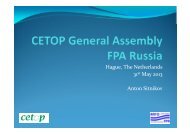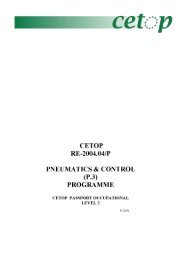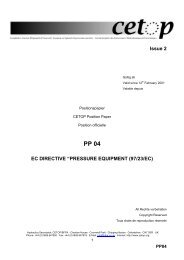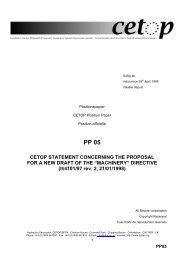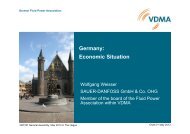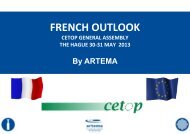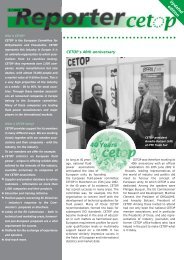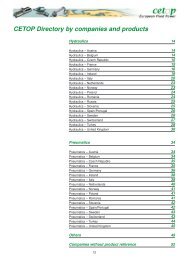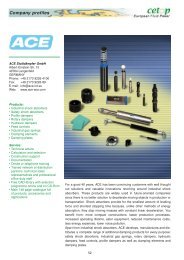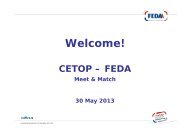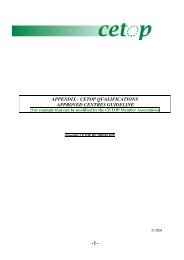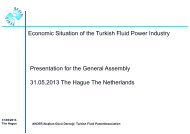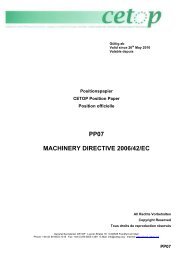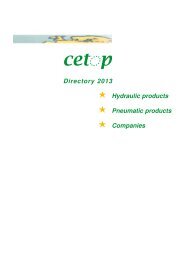CETOP RE 2000-01 - CETOP European Fluid Power
CETOP RE 2000-01 - CETOP European Fluid Power
CETOP RE 2000-01 - CETOP European Fluid Power
- No tags were found...
Create successful ePaper yourself
Turn your PDF publications into a flip-book with our unique Google optimized e-Paper software.
1. INTRODUCTION1.1 What is <strong>CETOP</strong>?Founded in 1962, <strong>CETOP</strong> is the <strong>European</strong> Oil and Hydraulics Committee andrepresents the National <strong>Fluid</strong> <strong>Power</strong> Associations within the fourteen <strong>European</strong>countries, in-turn representing some 1000 companies throughout Europe.<strong>CETOP</strong> supports, promotes and provides aid to the fluid power industry and preparesstandards and guidelines in co-operation with the technical committees of ISO(International Organisation for Standardisation), CEH (<strong>European</strong> Committee ofStandardisation) and the various National Standards Organisations.More detailed information may be obtained by visiting the <strong>CETOP</strong> Website atwww.cetop.org.1.2 Education and Training Proposal and Harmonisation initiative for EuropeWith the ever-growing need throughout Europe and the world for a COMPETENT,WELL EDUCATED WORKFORCE, able to maintain and manage fluid power systems;<strong>CETOP</strong> have taken the initiative to put forward a proposal to develop an harmonisationprogramme relating to the qualifications of such a workforce.1.3 The Aim is to develop an acceptable and agreed structure of “Competence BasedQualifications” reflecting the needs of those people who fall into the categories coveredby OCCUPATIONAL LEVELS 1, 2 and 3 (see appendix 1). Such a structure will reflectthe needs of those people in employment or being prepared for a particular level ofemployment.1.4 What are COMPETENCE BASED QUALIFICATIONS?Historically, many people have achieved a qualification that represents a “level ofacademic attainment” and does not always relate to that person’s ability to apply theirknowledge to a “real life situation”.The real life skills associated with Maintenance and Management of fluid powersystems are work related and are as follows:• PLANNING AND P<strong>RE</strong>PARING• INSTALLING• COMMISSIONING• TESTING• MAINTAINING• FAULT DIAGNOSIS AND <strong>RE</strong>CTIFICATION• <strong>RE</strong>MOVAL AND <strong>RE</strong>PLACEMENT• DISMANTLING AND <strong>RE</strong>ASSEMBLING-3-



